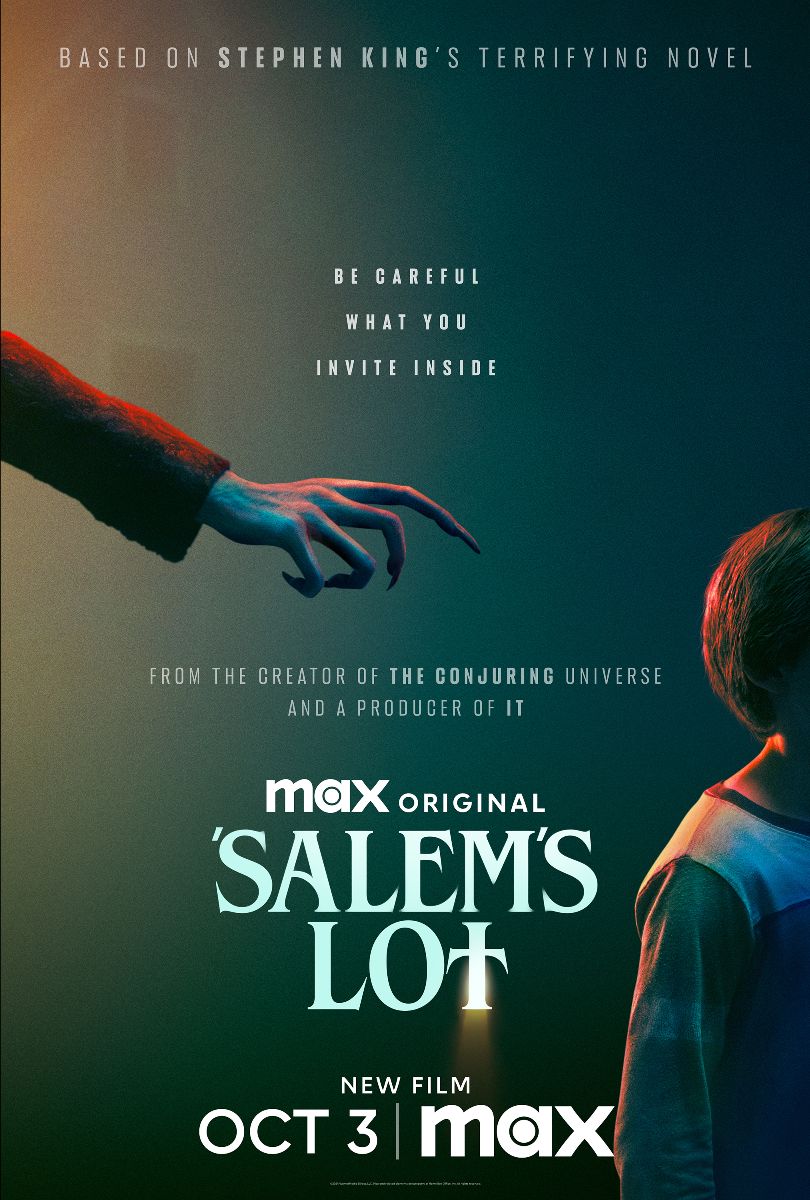
When an author returns to his hometown of Jerusalem’s Lot, the expectation is that he’ll find inspiration for his next novel while battling the local vampires. Unfortunately, the film adaptation of Stephen King’s “Salem’s Lot” veers off course like a bloodsucker with a craving for human brains. The novel is a masterclass in slow-burn horror, building suspense through rich character development and a meticulous exploration of small-town life. The film, however, is more like a microwave dinner: quick, unsatisfying, and replete with the lingering taste of regret.
The film’s pacing resembles a caffeine-fueled rabbit on roller skates. Characters leap to conclusions with a zeal that would make Sherlock Holmes blush. One moment they’re enjoying the quaint charm of their town, and the next, they’re battling a bloodthirsty vampire like it’s just another Tuesday. There’s no time to digest the events unfolding around them. You’d think the townsfolk were all on speed dial with the Grim Reaper, considering how quickly they embrace their fates.
Another crime against King’s source material is the characters themselves. They flit across the screen like phantoms at a poorly attended séance, lacking the depth and nuance that make King’s work so compelling. Take our would-be hero, Ben Mears, played by Lewis. He’s supposed to be a tortured writer returning home to confront his past, but the film relegates him to a glorified placeholder. His backstory — parents dead, a vague outsider’s perspective — serves little purpose, save for a cheap shot at sympathy. You might expect a writer to do some detective work, maybe pry into the town’s dark secrets. Instead, he’s just a guy who shows up and waits for the horror to happen. Not exactly the Ferris Bueller of small-town vampire saviors.
While Lewis delivers a commendable performance, it’s akin to putting a brilliant chef in a fast-food joint. He has the chops, but the material is so thin that it barely registers. As much as you might want to root for him, the film’s structure doesn’t allow for any emotional investment. You end up wishing for a bit more time, a few extra scenes where characters could breathe and develop. You think of how a mini-series would have been ideal, allowing for an exploration of these relationships and the eerie atmosphere of Jerusalem’s Lot — all the strange happenings rendered with the care of a master painter. Instead, we’re left with the emotional equivalent of a soggy sandwich.
Some moments gleam like diamonds in a dumpster fire. The vampires, for instance, are visually striking, evoking a sense of dread that is palpable. The filmmakers clearly understood the importance of atmosphere. The creaking sounds, the shadows lurking just out of sight — these elements create a mood ripe for horror. The action scenes also deliver a few hearty jolts. But they’re like fireworks on a rainy day; they dazzle for a moment before evaporating into the ether.
The key to adapting a King story lies in preserving the intricate web of relationships and the genuine horror that arises from them. The novel’s strength is in its slow-building terror, the way it intertwines the lives of the townspeople and their impending doom. In contrast, the film’s approach feels like a clumsy attempt to cash in on King’s name while disregarding the very essence of what makes his stories resonate. You could argue that it’s a disservice not just to the source material, but to the audience craving something deeper than a surface-level thrill ride.
Ultimately, this adaptation of “Salem’s Lot” defangs the terror, leaving you with the bittersweet taste of what could have been. The complexity of King’s narrative is replaced with a hastily assembled cardboard cutout version of the original, and you’re left yearning for the intricate dance of horror and humanity that made the novel a classic. You’re left wondering what it would look like if Hollywood hadn’t tried to squeeze a sprawling saga into a tidy two-hour package. The world of Jerusalem’s Lot deserves more than this half-hearted effort.
If you’re a die-hard King fan or a horror aficionado with a penchant for the grotesque, you might find some enjoyment in the film’s ambition and occasional sparks of brilliance. However, for those seeking an adaptation that captures the spirit of the original, this version is ultimately a disappointment. It’s a reminder of what can happen when studios, in their haste to cash in, ignore the very heart of the story they’re attempting to tell. So grab the book instead, settle in, and prepare for a slow burn that delivers on the promise of authentic horror. Because let’s face it — the real monsters aren’t just in the dark corners of Jerusalem’s Lot; they’re lurking in the editing room, where these adaptations often go to die.
Final Thoughts on Salem’s Lot
As we bid adieu to this nocturnal romp through the eerie streets of Salem’s Lot, one can’t help but ponder: in a world where the line between humanity and monstrosity blurs, what truly makes a villain—an insatiable thirst for blood or a profound sense of loneliness? Share your thoughts below! And for more sharp insights and cinematic explorations, be sure to dive into our other Reviews.
image source: IMDB




